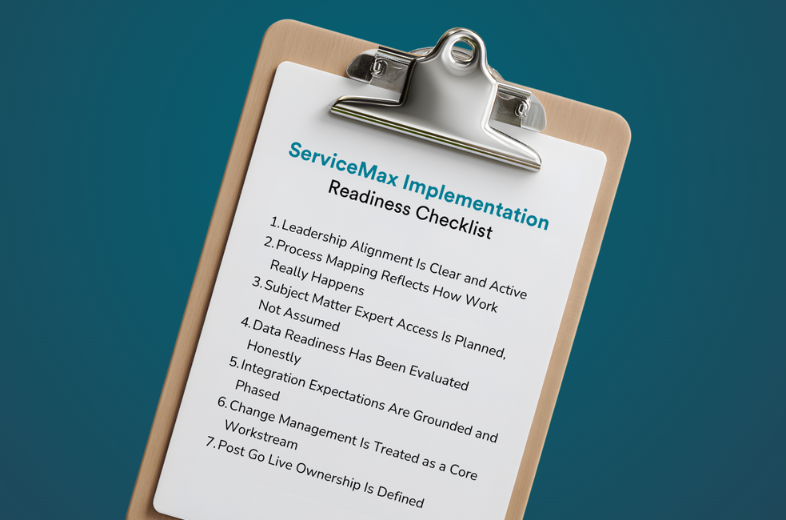8 Steps to Hiring the Right Consultant

Published Date
Determining that you need a consultant tends to be an “a-ha!” moment. When you’re faced with a problem that you simply don’t have the resources to solve, it’s something new you’re diving into or you want an external unbiased opinion, a consultant seems like the logical answer. The problem then becomes, “Who do we hire?” There are a sea of independent consultants, agencies and firms whose specialty is helping set you and your business on the right path, but how do you weed through and choose the right consultant for your unique predicament? Let’s explore the eight steps you should follow to hire the right consultant.
The first matter of business is to distinguish between hiring an external consultant or choosing someone from within your firm/business. The following are valuable guidelines to follow if you are seeking to hire a consultant to support your firm during a business transformation.
Step 1: Review their portfolio/resume
The most integral step is to evaluate the consultant’s resume. Whether it’s an individual or a firm, it is imperative to research their repertoire. What projects have they worked on? Have they worked on projects in the field that your business is in? Do they specialize in consulting in your field or are they open to working in various fields? Having expertise in various fields gives them leverage, and the ability to transfer over solutions from one industry to another. On the other hand, if they have focused on one industry, it can mean extensive expertise as well as a love and understanding for the space you’re in. Another item to consider is whether they can offer a portfolio of work to you. It’s great to see a list of companies they’ve worked with and project overviews on paper, but case studies can help you do an in-depth analysis of their methods and project management style.
Step 2: Set a clear goal for the project
As a client, delineate specifically what it is that you need. What do you need the consulting team to support you on? Are you looking to undergo a complete transformation of your business? If so, look for firms that specialize or have expertise in projects that require full implementation. If you know what you want and are not in the market for various proposals from a consultant, hire a firm whose expertise is in the product you have already set your sights on. For example, if your company is investing in a new method for online shopping and you are set on implementing Shopify {or maybe a different tool), hire a consultant who has handled multiple proven Shopify implementations. It sounds pretty simple, but you’d be surprised how many organizations fall victim to consultants who name off their platform experience and can’t deliver.
Step 3: Evaluate your consultant’s skills
There are thousands of consulting businesses. You can narrow them down by evaluating their skillset. If you are trying to expand your business into a new business market, ask yourself if this consultant has worked extensively in this field. What experience do they have that shows they know this market (and your product) well enough to help you position it clearly in front of a new audience? If you’re looking to launch a new product, evaluate the marketing and launch campaigns the candidate has worked
on. Finding a consultant with experience in crafting go-to-market strategies and persona development is crucial in this case. Overall, their skill profile should match your goals.
Step 4: Vet your consultant
It seems that these days anyone and everyone can list themselves as a consultant, but who has the consultant or firm you’re considering worked for or with? Take the time to reach out to previous clients, do the dirty work and gather information about projects they have led. If you can’t find a proper portfolio of work, that’s an easy strike one. If their listed experience and projects seem vague? That’s a second strike. If the previous clients you’re speaking to are unable to give clear and defined results from the work the consultant performed? Strike three.
Step 5: Room for development You don’t want to hire a consultant that will create “copies” of previous work. You want them to use their previous experiences to innovate and develop the leading technologies that can compete with- and surpass- those currently on the market. You want a consultant that will make decisions to help your company become a leader in your space. In your vetting process, you should be able to see over time that their strategies include new and evolving processes and methodologies. You should also evaluate if what they propose for you is a solution you feel can evolve or if in five years, it might be necessary to go through this process again, which can be costly and time consuming.
Step 6: Ensure they do their research
A simple way to determine if a prospective consultant is invested and interested in working with you is to evaluate how much they know about your business. Pay close attention to their approach during the proposal phase. Are they conducting research into your business practices? Gathering information about your past projects, successes and failures? Their proactivity will result in your business being able to hit the ground running once the official project kickoff takes place.
Step 7: The total package
Does the consulting firm you’re considering have a well-rounded team? It’s not only technical skills that you’re implementing These solutions have an impact on marketing, project management, operations, IT, finance, sales and more. It’s essential to work with a consultant who can help you create a holistic business and anticipate how these transformative solutions will impact your business as a whole. You want to make sure they can provide recommendations on how to keep your entire business functioning at the same level and understand the why and how it may change the future for all departments.
Step 8: They are the company that they keep
Which types of businesses are they representing? Think about it this way- let’s say you’re in the airline industry. Oo you want a consultant who has represented businesses like Delta and Virgin Air or the consultant who represents Frontier and RyanAir? Neither is right or wrong, but those businesses have very different goals, and therefore their consultants will use very different strategies. Having alignment around the industry is great, but finding a consultant who has worked within your market size and with companies of similar ranges of revenue is also important to consider. If your consultant has only worked with small startups, they may be innovative, but it can be difficult for them to scale their solutions and methods to fit a 10,000 FTE large enterprise. You want to ensure that their solutions can be crafted to fit your business needs specifically and most importantly, your budget.




